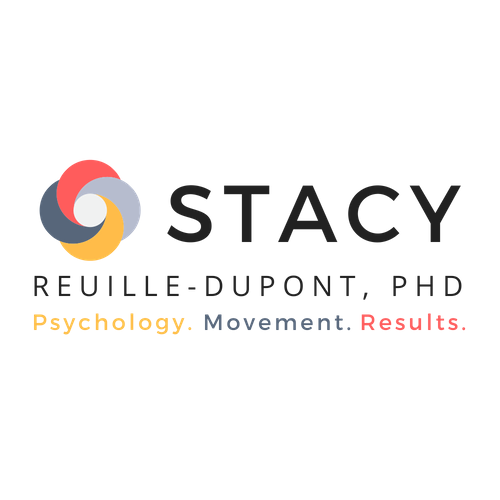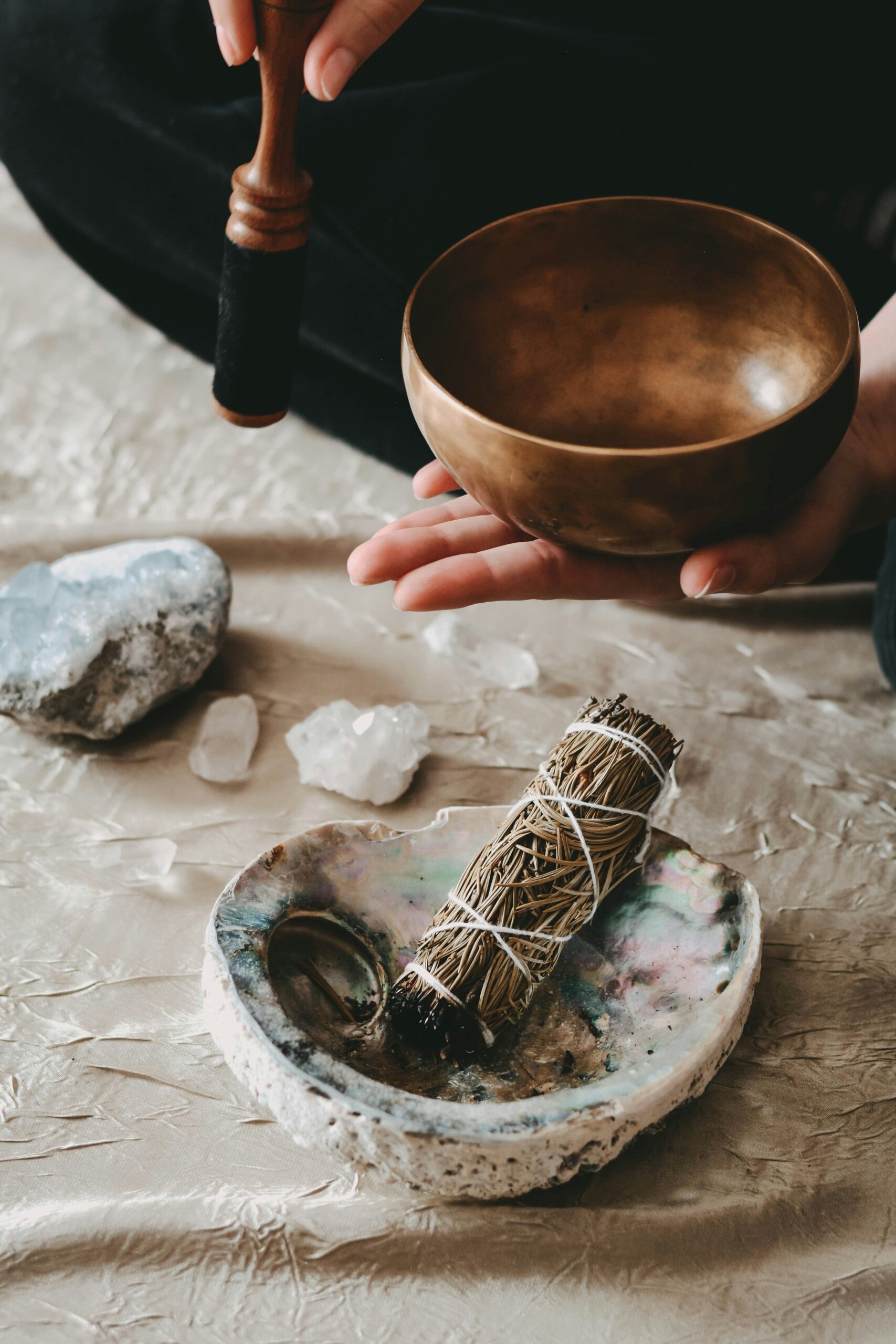Photo by Content Pixie on Unsplash
In our fast-paced world, where life often feels like a whirlwind of responsibilities, deadlines, and constant demands, finding ways to stay grounded and centered is crucial for our mental and emotional well-being. Rituals help build mental and physical health.
This powerful tool often goes overlooked. The practice of rituals alongside mindfulness and routine can help increase our positive psychology practices. The benefits of daily rituals include reduced anxiety, building healthy habits, and helping us find purpose through the ritual and routine.
Rituals are not just habits or routines; they are intentional actions that help us anchor our experiences, provide structure to our lives, and foster a deeper sense of purpose. Let’s explore how these simple yet profound practices can enhance our mental health, build positive behavior change, and create lasting meaning in our lives.
The Psychological Benefits of Rituals
Rituals serve as psychological anchors, helping us feel grounded and connected in the present moment. Research in psychology and behavioral science reveals that rituals provide numerous benefits: they help us manage emotions, create a sense of control, and strengthen our connection with ourselves and others.
According to leading psychologists like Dr. Martin Seligman and Dr. Roy Baumeister, rituals enhance our ability to find meaning and purpose in our daily activities. They offer a structure amid the chaos, transforming ordinary moments into something sacred and meaningful.
One of the key psychological benefits of rituals is their ability to reduce anxiety. When we engage in a ritual, we activate the brain’s prefrontal cortex—the area responsible for planning and decision-making—helping to calm the amygdala, the part of the brain associated with fear and stress. This is supported by Dr. Barbara Fredrickson’s research on positive psychology, which shows that rituals can increase positive emotions, broaden our thought processes, and build enduring mental and emotional resilience.
Start a New Journaling Ritual Today
The Commit30 Journal is my fav.
Create a positive and life-changing ritual in your life by adding journaling to your routine. I like to use my journal as a way to have a dialogue with my inner higher self. It allows me to work with thoughts, feelings, and behaviors outside of my head to get perspective and focus on larger issues, questions, and ideas.
Rituals as a Catalyst for Positive Behavior Change
Rituals aren’t just for managing stress—they are also powerful tools for creating positive behavior change. Dr. B.J. Fogg, a leading expert in behavior science, teaches that small rituals or “micro-habits” can make it easier to adopt and maintain healthy behaviors, such as regular exercise or mindful eating.
By connecting new behaviors to existing rituals, we create strong neural pathways in our brains, reinforcing those actions and making them more likely to become a regular part of our lives. Every time you start your day with a meditation or finish a workout with a stretching routine, you are telling your brain, “This is who I am. This is what I do.”
This concept of identity-based motivation, as described by Dr. James Clear in his book “Atomic Habits,” emphasizes that our rituals help us create and maintain a consistent pattern of behavior over time. Rather than relying on willpower alone, rituals make it easier to embody the healthy habits we aspire to have.
Want to Feel Good? Start a Ritual Around Eating Healthy and Enjoying Your Food
Since our inception, GOOD GOOD has been committed to delivering on our promise of innovating good-tasting, good-for-you, pantry staples with unparalleled quality and customer experience. To consistently deliver on this promise, we understand above all else, we must prioritize the wellbeing of our employees. The small but mighty team who are the backbone of our success and innovation.
Building Healthy Habits Through Rituals
Research in exercise physiology supports the idea that successful exercise routines often involve rituals. Dr. James Annesi and Dr. Michelle Segar have shown that rituals provide psychological cues—reminders that “it’s time to move”—which can be more motivating than relying solely on willpower.
Similarly, creating rituals around nutrition, such as meal prepping or practicing mindful eating, can promote healthier choices and reduce decision fatigue. By ritualizing these behaviors, we create a natural framework for positive change, turning healthy habits into consistent, meaningful actions.
Rituals and Mental Health: A Deep Connection*
Why does all this matter for mental health? Because rituals help us cultivate a sense of purpose and connection. Dr. Daniel Kahneman, a Nobel Prize-winning psychologist, teaches that our well-being is directly linked to the narratives we create about our lives. Rituals are a way to shape these narratives in positive, meaningful ways.
Whether it’s a morning walk, a gratitude practice, or a simple tea ceremony, these rituals are more than just actions. They are affirmations of life, love, and connection. They ground us in the present moment, reminding us of what truly matters.
Conclusion: Find Your Ritual, Ground Your Life
Rituals are your anchor amidst the waves of life. They help us navigate the ups and downs, providing a sense of stability, purpose, and meaning. Start today. Find a ritual that resonates with you, and watch how it transforms your experience of life.
Thank you for joining me on this journey. I invite you to explore the power of ritual in your own life and see the positive changes unfold.
Until next time, be well and live with purpose.
Want more individualized insights on mental health, wellness, and exercise science? Join our Mind Over Matter Monthly Subscription Program
#MindBodyRecovery #SomaticPsych #HolisticHealingJourney #MentalWellnessMatters #EmbraceChangeHeal #TherapeuticTransformation #WholeSelfHealing #MindBodyOptimization #PsychologyOfWellness #TrainMindBody #NutritionPsych #MindfulMovement #HolisticHealthCoach #MentalFitnessJourney #PsychoWellness #MindBodyFuel #SelfOptimizationTriad #StudioBLife #VibrantLiving #EmbodiedSpiritSelf #MentalHealth #DailyRituals #PositivePsychology #BehaviorChange #HealthyHabits #MindfulnessPractice #AnxietyRelief #WellnessJourney #ExerciseMotivation #PersonalGrowth
I WANT YOU TO FEEL VIBRANT AND ALIVE, COURAGEOUS,
WORTHY, AND FULL OF AMAZEMENT AND WONDER.
I help people take back their lives and heal physically, emotionally, mentally, and spiritually. My goal is to give you the tools you need to live a magnetic life, drawing to you the things you want, and creating your highest most incredible life.
- Let’s Get Acquainted. Learn More About Me
- You Can Also Book a Consultation Session with Dr. Stacy Here
Check out Online and In-Person Programs at StudioB.Life, our integrative psychology clinic where we use movement and nutrition alongside behavioral health interventions to help you Become the Best Version of You, You Can Be.
References
1. Dr. Martin Seligman and Positive Psychology: Seligman, M. E. P. (2004). Authentic Happiness: Using the New Positive Psychology to Realize Your Potential for Lasting Fulfillment. Free Press.
2. Dr. Roy Baumeister and Meaning in Life: Baumeister, R. F. (1991). Meanings of Life. Guilford Press.
3. Dr. Barbara Fredrickson and Positive Emotions: Fredrickson, B. L. (2001). “The Role of Positive Emotions in Positive Psychology: The Broaden-and-Build Theory of Positive Emotions.” American Psychologist, 56(3), 218-226.
4. Dr. B.J. Fogg and Behavior Change: Fogg, B. J. (2019). Tiny Habits: The Small Changes That Change Everything. Houghton Mifflin Harcourt.
5. Dr. James Clear and Habit Formation: Clear, J. (2018). Atomic Habits: An Easy & Proven Way to Build Good Habits & Break Bad Ones. Avery.
6. Dr. James Annesi and Exercise Behavior: Annesi, J. J., & Gorjala, S. (2010). “Relations of Reductions in Fatigue and Anxiety With Increased Motivation for Exercise in Adults With Obesity.” The Permanente Journal, 14(4), 20–28.
7. Dr. Michelle Segar and Sustainable Exercise Motivation: Segar, M. (2015). No Sweat: How the Simple Science of Motivation Can Bring You a Lifetime of Fitness. AMACOM.
8. Dr. Daniel Kahneman and Well-Being: Kahneman, D., & Deaton, A. (2010). “High Income Improves Evaluation of Life but Not Emotional Well-Being.” Proceedings of the National Academy of Sciences, 107(38), 16489–16493.





 Twitter
Twitter Facebook
Facebook Linkedin
Linkedin






